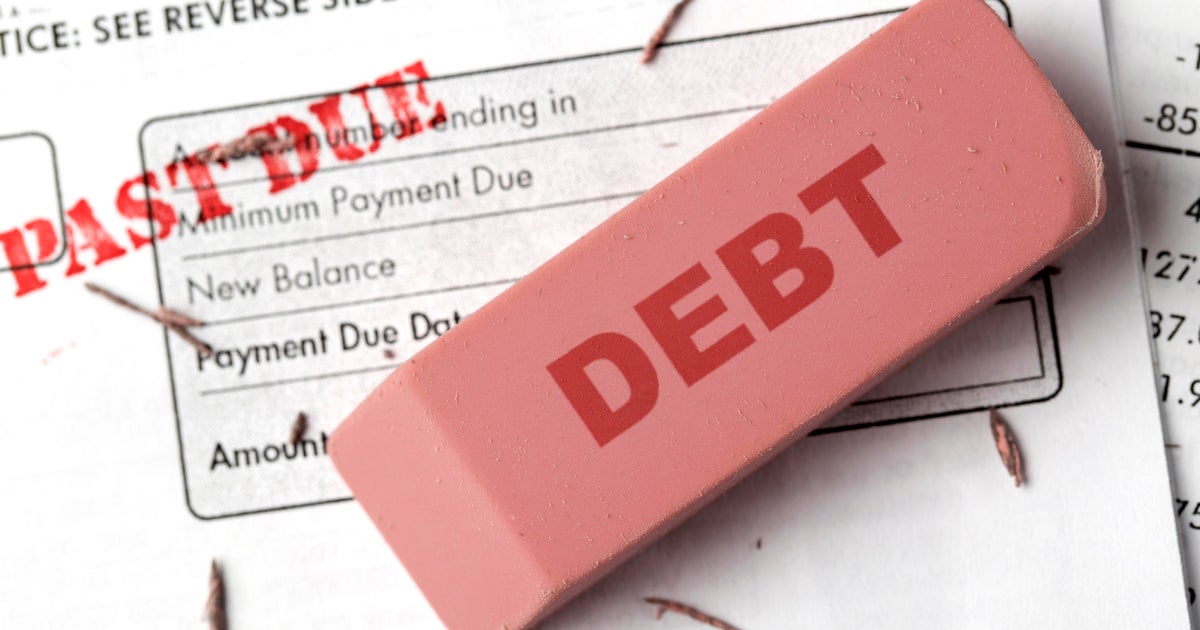Financial goals to focus on right now
Many Americans still face economic challenges due to inflation — which rose again in July after a brief cooling-off period. Not only has inflation pushed up prices of everyday items, but it's also led to the Federal Reserve to raise interest rates, which can lead to things like credit card debt and mortgages becoming more expensive. Meanwhile, the stock market generally had a rough 2022 before bouncing back so far in 2023, though not everyone is convinced that the good times will last.
While fear shouldn't drive your decision-making, these economic issues may be a reason to take another look at your financial goals. For some, issues like high interest rates pose an opportunity to grow wealth by getting a higher return on savings. But others might need to cut back and reorient their finances to get out of high-interest debt.
That's not to say that all of your goals will change because of the current economic situation, but it can be reasonable to adjust your financial plan throughout your life. Your big-picture goals might stay the same, like saving enough to buy a home, but the way you get there might change.
Explore the rates you could earn on your savings right now.
Financial goals to focus on right now
In this economic environment, your goals can change depending on your financial health. If you're already in a strong financial position, you might look for ways to make your money grow faster. But if you're in a financial hole, you might need to focus more on digging yourself out before high rates and costs send you deeper.
"Everyone's financial life plan should take a strategic path with a tactical overlay. The journey is long, things change, and life happens," says David Boniface, an LPL-affiliated financial wealth advisor and president, Legacy Capital Wealth.
Don't assume that you have to stick to whatever goals you've had in the past, as these can change based on the economy and your recent life changes, such as getting married, having kids, changing jobs, etc.
"There is an entire lifecycle of planning with goals changing in form and in priority throughout one's life. These are then also shaped by contextual factors including changing interest rates, like we've experienced over the past 18 months, as well as changing tax rates on things such as income and capital gains," says G. Ward Keever, LPL-affiliated president and CEO, Covenant Wealth Strategies.
Specifically, in this environment, consider the following financial goals. Learn more about how you can grow your savings right now.
Maximize your interest earnings
The upside of high interest rates is that you can increase your returns on cash, such as the money you have saved in high-yield savings accounts, money market accounts or certificates of deposit (CDs).
Take an inventory of where you're paying interest and where you're earning interest, says Todd Slingerland, LPL-affiliated CFP, Wealth One Advisory. "Formulate a strategy so that you are not missing out on earning opportunities or paying more than necessary."
For example, he says, comparison-shopping cash management accounts can help you earn more interest than just adding more to your current account. "The default may no longer be the most advantageous option," notes Slingerland.
As you take inventory of where you're paying and receiving interest, you might find arbitrage opportunities, meaning you can earn more in one area than you pay in another.
"If one is lucky enough to have a mortgage rate substantially lower than today's available savings rate, it makes better economic sense to add to a higher yield savings account than to reduce the substantially lower rate mortgage debt balance," says Boniface.
Reduce high-interest debt
While some debt, like a low-interest mortgage, can be advantageous to keep, you likely want to prioritize paying off high-interest debt, especially if you have variable loans that continue to rise.
"If you or your spouse need to re-enter the workforce or get a second job in order to accelerate income to enable you to pay down/off debt, do it," says Keever.
This emphasis on paying off debt can even come ahead of other common financial goals.
"Quite simply, you should aggressively pay down all high-yield debt, even if it means your current savings plans suffer. While it is still important to maintain an emergency savings plan, derailing your future due to high revolving interest costs will likely lead to financial pain," says Boniface.
One strategy is to pay off high-interest debt by taking out new loans at a lower interest rate, i.e., refinancing or rebalancing. Keep in mind, though, that you're still responsible for paying off these new loans, and you don't want to end up back where you started.
"Look for opportunities to consolidate debt into lower interest rate vehicles. For example, transfer balances to a 0% card and pay off the card balances to avoid making high interest payments on outstanding credit card balances," says Slingerland.
Put your money to work long term
If you have your debt under control and are in a good place with earning interest on your cash, you might look to put additional money to work in the market to reach long-term financial goals like retirement.
While difficult economic conditions like these might make you feel like you need to pull back, over the long term, one of the best ways to make money grow is to invest in assets like stocks, rather than only holding cash.
"Redeploy cash that is not part of your emergency fund — which is 3-6 months' worth of expenses and any money you anticipate needing for purchases within the next 12-24 months —into investment accounts such as a 401k, Roth IRA, 529 college savings plan, etc.," says Keever. "Get that money working for you."
Also, focus on ways to maximize your wealth by taking advantage of things like employer matching for your retirement savings, as well as finding tax-sheltering opportunities, adds Keever.
Cut expenses
Even if you're doing relatively well in this economy, higher prices might be a good reminder to review your budget and see where you can cut expenses. The more you can save, the more you can earn through interest-bearing accounts and/or invest in assets like stocks for long-term goals.
"Look at your household budget. Food, energy, gas, and other costs continue to rise substantially," says Slingerland. "Even small changes can add up significantly. Challenge your family to be part of the solution."
For example, he says, simple shifts like adjusting your thermostat and taking public transportation could help.
Cutting expenses can be particularly important if you face issues like a job loss and need to rely on your emergency fund, rather than going into debt.
The bottom line
Focusing on these types of financial goals can help you better navigate this current environment while setting you up for long-term financial success. Remember, though, that it's okay to adjust your goals over time. While these financial goals might take priority now, it's possible they will shift again soon, especially as you consider goals of different magnitudes.




